
|
|
Issue Number 11 • Tuesday, Feb. 22, 2022 |
Campus ChampionC’Ality Hackett, president of Black Student Union, has a busy week ahead as a planner of several Black History Month events. Tuesday is the Afro-Fusion dance workshop, Wednesday she introduces a faculty panel, “Do We Really Matter? Critical Race Theory, Racial Disparity and Campus Climate,” Thursday is the ever-popular Afro Essence and Friday is the Black and Boujee party. She’ll wrap up the week with the Kings and Queens Conference on Saturday. The senior biology major, chemistry minor and member of the Biological Sciences Biology, Diversity, Equity and Inclusion Committee, is on track to become a veterinarian. Along the way this campus leader raises awareness and understanding about racial equality. Tuesday, Feb. 22Black History Month Student Presentations: “Early Racialized Philosophies of People of African Descent” and “Predictive Policing: History and Methods,” presented by Africana studies student Alfred Robertson and political science student Daniel Reischer, Moffett Center, first floor forum, 4:30 p.m. Dowd Gallery Talk: Ask a Curator, Q&A with Jaroslava Prihodova, director and Scott Oldfield, gallery assistant, Art and Art History Department, online via Webex, 5 p.m. Cortland Nites Trivia: Corey Union Exhibition Lounge, 9 p.m. Wednesday, Feb. 23Black History Month Sandwich Seminar: “Recruiting and Retaining BIPOC Employees,” Old Main Colloquium, 12:30 to 1:30 p.m. Brooks Museum Lecture Series: “(Re)Making Home on Shifting Sands: Lessons from Post-Catastrophe Corrosive Communities,” Moffett Center, Room 115, 4:30 p.m. A reception will start at 4 p.m. in the Rozanne M. Brooks Museum, Moffett Center, Room 116. Internship Info Session: Online via Handshake, 4 to 5 p.m. Black History Month Lecture: “Paving the Way to Greater Diversity, Equity and Inclusion with the Campus: Meeting the needs of First-Generation College Students,” online via Webex, 4:30 p.m. Black History Month Lecture: "Do We Really Matter?: Critical Race Theory, Racial Disparity and Campus Climate," faculty panel, Sperry Center lecture hall, 7 p.m. Wellness Wednesday Presentation: My Relationship with Food,” with registered dietitian nutritionist Andrea Hart, Nutrition From The Hart, Corey Union Exhibition Lounge, 7 to 8 p.m. Thursday, Feb. 24Body Appreciation Week: Body Compassion, presented by Jennifer Talarico, Senior Counselor, online via Webex, 4 to 4:30 p.m. Panel Discussion: Keyword Conversation “History,” presented by the Cultural and Intellectual Climate Committee, Old Main Colloquium, 4 p.m. Town Hall on the New York Health Act: With 125th District Assembly member Dr. Anna Kelles, online via Webex, 4 p.m. Dowd Gallery Artist’s Talk: Faculty Biennial 2022, Dowd Gallery, 5 p.m. Black History Month Event: “Afro-Essence - Celebrating Soul, Talents, Poetry, Music, the Arts and Fashion,” Corey Union Function Room, 8 p.m. Thursday, Feb. 24 to Sunday, Feb. 27Performance: Possessing Harriet, Dowd Fine Arts Theatre, visit the Box Office Website to purchase tickets, Dowd Fine Arts Center Theatre, Thursday, Friday and Saturday performances at 7:30 p.m., Sunday performance at 2 p.m. Friday, Feb. 25Black History Month Event: “Black and Boujee — 2022 Mardi Gras Edition,” Corey Union Exhibition Lounge, 9 p.m. Saturday, Feb. 26Black History Month Event: "”Kings and Queens Conference - Healing our Wounded Souls” Corey Union Function Room, noon. Cortland Nites Paint and Sip: Corey Union Function Room, 8 p.m. Monday, Feb. 28Celebrate International Study Abroad Day Money Talks Monday - Ask Me Anything Financial Wellness: Online via Handshake, 4 to 5 p.m. Black History Month Panel Discussion: Black Lives Matter at School, online, 4:30 to 6:30 p.m. Tuesday, March 1Open Mic Night: Corey Union first floor, 7 p.m. Wednesday, March 2Wellness Wednesday: “Hazing Prevention Education,” Corey Union Function Room, 7:30 to 8:30 p.m. Women’s History Month Sandwich Seminar: “It’s not just us: Global and gender perspectives on vaccine hesitancy and anti-vaxxing movements,” Old Main Colloquium, 12:30 p.m. Virtual Career Fair on Handshake: Register in Handshake, 1 to 4 p.m. Take a Break! with Advisement and Transition, Corey Union Exhibition Lounge, from 5 to 6:30 p.m. Thursday, March 3Women’s History Month Discussion: Gender revolution/pronoun evolution: An exploration of gender and identity, presented by Campus PRIDE, Old Main Colloquium, noon to 1 p.m. Friday, March 4TransAction Conference: The forth annual conference about the needs and experiences of transgender and gender queer students in the college environment, advance registration is required, 9 a.m. to 1:30 p.m. SUNY Cortland Cupboard Filled Fridge Fridays: Located in the basement of the Interfaith Center at 7 Calvert St., 10 a.m. to 4 p.m. Saturday, March 54th Annual Men of Color Student Leadership Summit: Mental Fitness, keynote speaker is Juan Miolan ’09, online via Webex, 12:30 to 5 p.m. Register here. Cortland Nites: $3 Movie Night: Crown City Cinemas, 8:30 p.m., $3 Sunday, March 6Women’s History Month Event: Rock Climbing: Gender inclusive climbing - An introduction for women, Trans* and non-binary folx,” Student Life Center Climbing Wall, 8 p.m. Monday, March 7Speed Resumes: Online via Handshake, 4 to 5 p.m. Garden Lecture: “Are ‘Alien’ Plants ‘Bad’?” Presented by Doug Tallamy, an entomologist at the University of Delaware and best-selling author, RSVP online. Monday, March 7Dinner-Time Dialogue: An Evening with Brendan Kiely, author of The Other Talk: Reckoning with Our White Privilege, online via Webex, Event Registration Form, 7 to 8 p.m. Tuesday, March 8Alumni Speaker Series: Careers in History and Political Science, Student Life Center, Room 1104, 6:30 p.m.
|
“Possessing Harriet” opens Feb. 2402/21/2022Field trips aren’t usually part of the preparation for student actors in SUNY Cortland’s Performing Arts Department. Yet the four students taking the stage in the upcoming campus production of “Possessing Harriet” said they found inspiration when they traveled to the historic underground railroad site at the estate of abolitionist Gerrit Smith in Peterboro, N.Y., that helped them bring their characters to life. The play, which was commissioned by the Onondaga Historical Association and debuted on Syracuse Stage in 2018, tells the true story of a slave, Harriet Powell, who escaped from a Syracuse hotel in 1839 with the aid of Thomas Leonard, a free Black man, and found refuge on the Smith estate in Madison County. There, she met Smith and his cousin, Elizabeth Cady, later known by her married name, Stanton, who would go on to become a leading figure in the women’s rights movement. “Possessing Harriet,” which opens in the Dowd Fine Arts Center Theatre on Thursday, Feb. 24, explores themes of slavery, racism and freedom while also delving into the misconceptions Black and white people had about each other during this era. 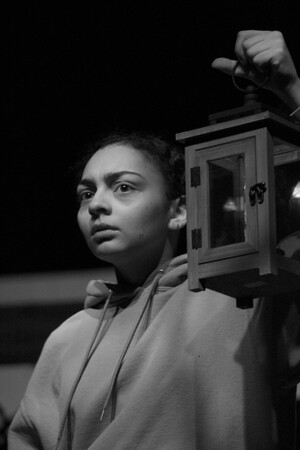
By visiting the Smith estate, the actors were able to see one of its few remaining structures from the 1830s, a barn where slaves had passed through on their journey to freedom. “I got emotional because knowing that we could tell this story to the community and to our college really hit me for some reason,” said Nora Greenberg, a senior from Brooklyn, N.Y., who plays Elizabeth Cady. “In that spot our tour guide said, ‘Harriet 100 percent walked right there.’ It was so incredible.” “I, as a person, I’ve never held onto history. I’m more of a math and science brain type of gal,” said Tatiana Padro, a sophomore from Bay Shore, N.Y. who plays Harriet Powell. “But seeing something firsthand and knowing that slaves walked through that building in order to be free, and had to quickly come in and change clothes, have a meal and up and leave again. It’s mind-boggling.” Powell, who was sold at auction in New Orleans at age 14, had come to Syracuse as servant to a wealthy couple visiting from Mississippi. Cady, who briefly met Powell at the Smith estate, later wrote about that experience in her autobiography. Playwright Kyle Bass, an assistant professor of theatre at Colgate University, met with SUNY Cortland’s student actors to talk about the characters and his historical research. Bass urged them to not worry so much about depicting these characters exactly as they were, but to find the truth in the emotions and concepts they grapple with throughout the play. “Getting to go to Peterboro and getting to talk to Kyle helped immensely with character development,” said Dominic Green, a junior from Queens, N.Y., who plays Thomas Leonard. “Touching the stables, we felt the energy. When we were able to ask Kyle questions, that helped so much. I’m grateful for the opportunity because I don’t think we’d be able to give the same show as we’re giving now had I not had those pieces.” “The fact we got the opportunity to talk to the playwright was insane,” Greenberg said. “I hope we get that opportunity again. You can’t talk to Chekov. It was really amazing and I feel like we all learned a lot about the show and about our characters talking to the playwright himself.” With just four actors in the cast, “Possessing Harriet” will use an extended stage that brings the play closer to the audience. This intimate setting has caused the actors to lean on director Rodney Hudson and the diction and elocution they’ve learned in the classroom and apply it on stage in a different way than in, for example, musicals with a large ensemble cast. “Our director has told us it’s OK to give some lines to the audience instead of looking to our fellow actors all the time,” Padro said. “This stage especially, if you’re looking to your fellow actor and they’re upstage, it’s easy for your face to not be seen by any person in audience. If we’re constantly looking at each other, no one is going to see what our facial expressions are or what we’re feeling in that moment.” The connection with the audience is crucial as the actors convey complicated emotions about their reckonings with slavery and its moral consequences. “There’s more than just the four of us,” said Thomas Curty, a first-year student from Staten Island, N.Y. who plays Gerrit Smith. “There’s a whole world beyond that door. We can’t go out there because we have to stay in and protect Harriet, but we understand each individual character and we understand who they were. We may not agree with it, but we understand why they’re doing it.” “Possessing Harriet” will be performed in the Dowd Fine Arts Center Theatre on:
Tickets are $20 for the general public, $15 for faculty/staff and senior citizens and $10 for SUNY Cortland students and children. Tickets may be purchased online or at the Dowd Fine Arts Center Box Office on Wednesday from 9 a.m. to noon, Thursday from noon to 3 p.m. or Friday from 9 a.m. to noon. Audience members are required to wear face coverings at all times while inside Dowd Fine Arts Center. Proof of COVID-19 vaccination, with a valid student ID or driver’s license, or proof of a recent negative PCR test are also required.
Physical education society to honor two seniors02/24/2022Two of the eight New York college students recently recognized for excellence by the national Society of Health and Physical Educators (SHAPE) are SUNY Cortland seniors. Physical education majors Jenna Kratz and Matthew Milano each earned Major of the Year, one of the highest pre-professional honors given by SHAPE to undergraduates in the fields of health, physical education, recreation and dance. Among other accomplishments by these two students:
The pair will join 113 college students from around the country accepting Major of the Year awards in New Orleans, Louisiana, during a general session of SHAPE America’s annual national conference, April 26 to 30. 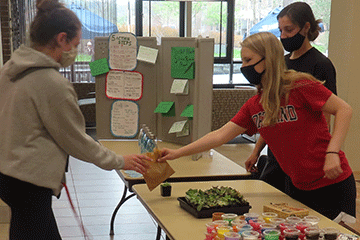 “This is our national governing organization in the fields of physical education and health,” said Helene Schmid, a Physical Education Department lecturer who nominated Kratz and Milano for the recognition. “It is a very prestigious award for our students. They are both exceptional majors.” Juniors or seniors with a grade point average of 3.0 or higher who provide substantial services to their school or community for a minimum of two years during their undergraduate career may be nominated. “Congratulations to those two students, it is a great accomplishment,” wrote Joey Martelli, advocacy and public affairs manager for the Annapolis, Maryland-based professional society, in a recent email. “We look forward to honoring these outstanding student majors this year.” “They are introduced to other top students in the field from all across the country, building the next cohort of leadership in the field,” said Rebecca Bryan, interim chair of SUNY Cortland’s Physical Education Department. It’s possibly the first time that SUNY Cortland has sent two seniors at once to accept a Major of the Year award, Bryan said. “To my knowledge, Jenna and I are the first two students from SUNY Cortland to represent New York state in the same year,” Milano said. “If it did happen, it didn’t happen in recent years.” Every institution with a SHAPE related major — P.E. and health, both of which SUNY Cortland offers — can nominate two students per major, Bryan noted. Usually the university’s selection must first win the New York State Association of Health, Physical Education, Recreation and Dance award for outstanding majors, called the J.B. Nash Award. Neither nominees Kratz nor Milano won in November 2021 during the annual conference in Verona, N.Y. 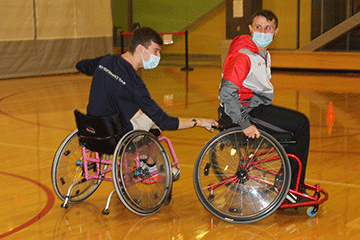 “But we did get the association’s Amazing People awards,” Kratz explained. This award is given by zones and sections to honor individuals who have made exceptional contributions to the profession. “But I’m Ok with that, especially because we got the SHAPE America Major of the Year awards,” Kratz said. Kratz and Milano both are enrolled in a special, four-plus-one program, which means they will earn a bachelor’s degree through the Physical Education Department and a master’s degree through the Health Department one year later. They are very active in their field and in the wider campus community. Both joined the advocacy efforts for their future profession by participating in SPEAK Out! Day, when majors from across the U.S. traditionally gather in Washington, D.C., to converse directly with congressional representatives about the need to foster more vibrant physical education and health programs in America’s primary and secondary schools. Due to the pandemic, recent SPEAK Out! Days have taken place virtually. “Matt has attended advocacy training, scheduled meetings with members of Congress, and advocated the importance of effective health and physical programs to our New York State Delegation on Capitol Hill,” Bryan said. Kratz also met with her local congressional representative to make her point. Outside the classroom, Milano leans into his concentration in adapted physical education by using a wheelchair in the Student Life Center to shoot hoops with classmates of all different abilities during Integrated Sports Club events. “He has been an active member of our majors club, Alliance of Physical Education Majors (APEM),” helping to plan many club events, Bryan added. “He is a wonderful student and human who is fully engaged in his learning, a bright, young leader in our profession.” “I think one thing that’s important is definitely to stay involved,” Milano said. “That’s one thing I try to tell the younger students as well when I have the opportunity.” Kratz, in addition to being involved in many student clubs and organizations, interned with the university’s Institute for Civic Engagement office, organizing and managing a monthly health and wellness day for students and a virtual 5K. “She is always a wonderful student to have in class, but working with her outside of class has truly shown me her integrity, her communication capabilities, her organization skills and her passion for advocating,” Schmid said. “Jenna is a leader in every sense of the word.” “With the Institute for Civic Engagement I was primarily focused on mental health,” Kratz said. “I was injured a lot as an athlete in high school so I knew it really put a damper on my mood. Plus, when you’re not getting enough to eat, when you’re not exercising enough, you’re feeling sluggish. “It’s such a stigmatized thing, and it shouldn’t be,” Kratz continued. “And I’m not afraid to talk about it. I’m not afraid to say, ‘There needs to be change.’ If something needs to be done, it should be done.” Kratz currently is student teaching high school children at Liberty (N.Y.) Central School District, not far from her hometown. Milano will walk at Commencement in May but complete his student teaching next fall. Meanwhile, a reward for their hard work awaits them in New Orleans. “I’m very excited,” Milano said. “It’s definitely going to be an amazing opportunity to network with other professionals, sit in on different conferences and meetings, and hopefully to explore the city of New Orleans.” “It’s such a culturally rich place,” Kratz said. “Plus I’m getting to meet physical education and health people from across the country. To make all those connections and learn from those different people, and see what I can bring back to my students, that’s the bigger thing to me.” Capture the MomentCampus comes alive when 50-degree weather lands in the middle of February, as it did Monday, Feb. 21. The short-lived break in temperatures brought out bikes, shorts and sunglasses, only to return to winter weather advisories for the days ahead. Now is a perfect time to discover upcoming student club-related events on the Cortland Connect webpage. In Other NewsWomen’s History Month 2022SUNY Cortland’s Women’s History Month theme for 2022 is: “Providing healing, promoting health.” The programming for this year’s celebrations recognizes the role of women in developing and leading wellness, advocacy and social justice efforts across the globe. Through March, SUNY Cortland will showcase scholarship, activism and creative projects developed by the university’s Women’s, Gender and Sexuality Studies minors and host national leaders in anti-racism, gender-equity and reproductive justice. Highlights include:
Events are open to the public and free unless otherwise noted. 2022 Women’s History Month events:
Co-sponsorships and funding for Women’s History Month events were provided by BridgeCortland, Campus PRIDE, Career Services, the Clark Center for Global Engagement, the Gender Policies and Initiatives Council (GPIC), the Center for Gender and Intercultural Studies, the Institute for Civic Engagement, the Institutional Equity and Inclusion Office, International Programs Office, Multicultural Life and Diversity Office, the New York Public Interest Research Group (NYPRIRG), Outdoor Pursuits, the President’s Office, Recreational Sports and the Sexual Orientation, Gender Identity and Expression (SOGIE) Committee. For questions about Women’s History Month events, please contact Jena Nicols Curtis, professor in the Health Department and coordinator of women’s, gender and sexuality studies, at 607-753-2979. Information on these events will also be posted to the university calendar. Event attendees are reminded that face coverings are required in all indoor spaces on the SUNY Cortland campus. Learn more about the university’s policies on the COVID-19 safety information page. Men of Color Student Leadership Summit setFor the past three years, SUNY Cortland’s Male Multicultural Initiative has held a Men of Color Student Leadership Summit, a dynamic series of workshops and speakers promoting academic success and goal attainment for male students of color. The fourth annual leadership summit — a virtual event on the theme of “mental fitness” — takes place from 12:30 to 5 p.m. on Saturday, March 5,with advance registration. The event is free and geared to college and university participants in the upstate New York region. Past summits have attracted participants from as many as 26 universities, high schools or church congregations. To register to attend the talks, and to find out more about numerous other speakers, visit the summit website. The summit will provide dynamic workshops and sessions, speakers, and promote completion and goal attainment for male students of color and traditional students, according to organizer Cyrenius Fitzjohn ’19, SUNY Cortland assistant chief diversity and inclusion officer. “It’s an honor to coordinate and be a presenter at this year’s Men of Color Leadership Summit,” Fitzjohn said. “We have a special group of individuals who will be a part of the summit this year: students, current staff members and alumni, who are all united in the effort to expand the work of diversity, equity and inclusion in our community.” Highlighting this year’s virtual summit will be keynote speaker Juan Miolan ’09, founder, president and vitality coach at Thrive212, Inc., which helps people in high-pressure situations find physical, emotional and mental health. Miolan, a certified health and wellness coach, nutrition coach and movement coach, will speak from 1 to 2:15 p.m. “I believe that addressing the soul and emotional wounds is the key to our true transformation,” Miolan said, noting that many leaders have consulted him to help solve their sleep, anxiety and weight challenges. “I also believe that as our Black community heals, so will the world,” Miolan said. “Our Black and brown leaders transmuting generational traumas while remembering and activating their genius is the way to get there.” Miolan, who describes himself as “a consistently humbled father of two,” completed his bachelor’s degree in kinesiology at Cortland and spent more than a decade fostering fitness and nutrition by working one on one with individuals. "I’ve seen how the health field neglects to address the soul, how the mindset and spirituality fields neglect the body, and how all of these neglect to address our emotions,” Miolan said. “This often leaves people feeling like they aren’t good enough or broken, and that couldn’t be further from the truth. “It’s time for a new and integrative approach to accessing our divine health that is through accessing both the body and the soul,” Miolan said. In 2017, he opened Thrive212 with the vision of helping others empower their lives. Miolan explained that 212 is the degree in Fahrenheit where water transforms into its highest state. “It is the next level and represents expansion, and I believe that many people are just one degree away from tapping into their next level of greatness,” Miolan said. From 2:25 to 3:25 p.m., Fitzjohn will speak during the first Breakout Session. 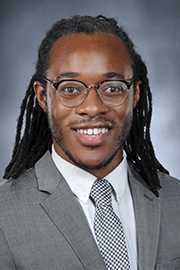 Fitzjohn on Dec. 9 began in the newly created position of assistant chief diversity and inclusion officer, fostering campus-wide leadership and support on matters relating to diversity, equity and inclusion for all members of the SUNY Cortland Community. In July 2021, he became the acting assistant director to multicultural life and diversity, filling a vacancy within the Division of Student Affairs’ Multicultural Life and Diversity Office, which coordinates and facilitates student programming, leadership development and education related to multicultural life, diversity, equity, inclusion, social justice and community building. Fitzjohn previously had served the university as a residence hall director after he graduated from SUNY Cortland in 2019 with a bachelor’s degree in English. A panel presentation, with panelists to be announced, will take place during the second Breakout Session from 3:35 to 4:45 p.m. Afterward, Fitzjohn will deliver the closing remarks. “It’s my hope that all who attend and participate in this year’s summit will feel they have learned something valuable that they are able to use to enrich the experience of those around them,” Fitzjohn said. The summit is sponsored by the Institutional Equity and Inclusion Office (IEIO), Men of Value and Excellence (MOVE), Multicultural Life and Diversity Office (MLDO) and Tompkins Cortland Community College Office of Diversity Education and Support Services. For more information, contact Fitzjohn at 607-753-4352. Ribbon cutting for Moffett Center renovations plannedA year and a half after renovations were completed, SUNY Cortland will hold a pandemic-delayed ribbon-cutting to celebrate the $25 million transformation of Moffett Center. The President’s Office will host the ceremony at 10 a.m. on Thursday, March 10, in the sun-lit central gathering area of the nearly 70-year-old building. Before the renovation, that space was a 1950s-era gymnasium. “Although many members of the campus community have experienced the new Moffett Center, many have not, and we hope they will take this opportunity to visit,” President Erik J. Bitterbaum said. “It really is an amazing academic space.” In addition to Bitterbaum, speakers include Zach Newswanger, associate vice president for facilities management, and Taylor Hunter, Student Government Association president. The gymnasium has been transformed into a 3,400-square-foot forum filled with study alcoves and comfortable furniture where students and faculty can meet. New skylights flood the atrium with natural light, while a second level mezzanine offers access to a variety of reimagined classrooms. Sawubona, a coffee shop that opened in Moffett Center a year ago, serves premium African coffee and specialty sandwiches. The transformation has been a long time coming. Phase I of the Moffett Center update was completed in 2009. It renovated 20,000 square feet of main level space encompassing the pool area and back wall facing Sperry Center into modern classrooms, offices and a lounge area for the Sociology/Anthropology Department. A second phase was designed in 2011, but the economic recession ground progress on the renovation to a halt. New York state only released funds to carry out the remaining updating in 2020. The pandemic then delayed campus events like ribbon cuttings. “It has taken longer than we expected,” Bitterbaum said. “But it was definitely worth the wait.” How communities recover from catastropheA “mega catastrophe” is a disaster of almost unimaginable proportions. Think, for example, of 2004’s Indian Ocean tsunami, which killed an estimated 227,898 people in 14 countries, making it one of the deadliest cataclysms in recorded history. The plight of the affected people prompted a worldwide humanitarian response, with donations totaling more than $14 billion U.S. dollars. Elizabeth Bittel, an assistant professor of sociology at SUNY Cortland, specializes in studying how humans endure this kind of massive devastation, whether from wars or the “natural” elements, which scientists are blaming for more than a few disasters. “As we move toward a more unstable global climate with an increased risk for ecological destruction, lessons from complex humanitarian emergencies are more prescient than ever,” Bittel said. 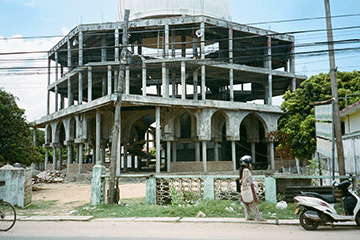 Bittel will lecture on “(Re)Making Home on Shifting Sands: Lessons from Post-Catastrophe Corrosive Communities” on Wednesday, Feb. 23, at SUNY Cortland. Her talk, which will take place at 4:30 p.m. in Moffett Center, Room 115, continues the 2021-22 Rozanne M. Brooks Lecture Series of talks or poster sessions at SUNY Cortland, which this academic year focuses on the theme of “The Culture of Extremes.” A reception to welcome Bittel will start at 4 p.m. in the Rozanne M. Brooks Museum, Moffett Center, Room 116. The Brooks Museum lectures and receptions are free. Due to continued health and safety concerns surrounding the pandemic, members of the public are not invited. Seating will be limited and cannot be exceeded. The presentations all take place on Wednesdays and begin at 4:30 p.m. in Moffett Center, Room 115. Events in the series are subject to change. Bittel, who also serves as a visiting scholar in the South Asia Program at Cornell University, has focused her scholarship on the sociology of environment, social dimensions of disasters and hazards, environmental justice and ethnographic methods and Sri Lanka. 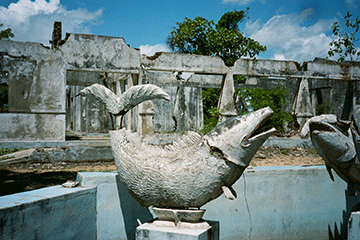 Lately she has used ethnographic data she collected from communities in the Batticaloa region of Sri Lanka, one of the hardest-hit countries by the Indian Ocean tsunami, to study how its people have experienced recovery some 18 years after the mega earthquake-linked disaster. Sri Lankans also endured on- and off-again violent civil conflict between the Sinhalese government and Tamil separatists for nearly 30 years, with the war officially ending in 2009. Bittel has observed how the process of rebuilding physical infrastructure is shaped by actors and institutions that co-produce social cohesion or corrosion, both of which flourish throughout the lifecycle of disasters. So communities pulling together or dividing can make the difference between a successful or an unsuccessful recovery. “This work interrogates how power flows through institutions and communities seeking to rebuild their homes on shifting sands,” Bittel said of her ongoing work to theorize “disaster recovery.” “And, in doing so, critiques the popular ‘build back better,’ resilient-community narrative by troubling our understandings of what exactly ‘recovery’ is, who it is for, and how it happens.” Born in Key West, Bittel was raised in South Florida and earned a Bachelor of Arts in Sociology and Social Welfare, summa cum laude, at the University of North Florida in Jacksonville. While earning a Ph.D. in sociology at the University of Colorado Boulder (UCB) in 2019, she focused her research on environmental sociology and worked as a graduate research assistant and the internship coordinator at the UBC’s Natural Hazards Center at the Institute of Behavioral Science. 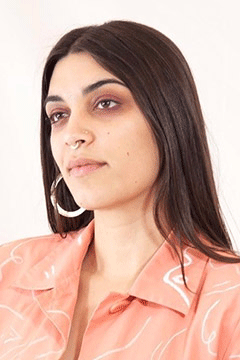 In 2017, she was awarded a Foreign Language and Area Studies Fellowship from the American Institute for Indian Studies and Institute for Regional Studies at University of Wisconsin to attend a Tamil language intensive institute in Madurai, India. Bittel also received an American Institute for Sri Lankan Studies Curriculum Development Grant: Teaching About the 2004 Tsunami. Bittel has developed a teaching module for the American Institute for Sri Lankan Studies titled “Teaching About the 2004 Tsunami.” She co-authored a book chapter on how children offered a bottom-up response after Hurricane Katrina for a forthcoming book The Potential for Bottom-Up Responses to Crisis (London: Palgrave Macmillan). The “Culture of Extremes” series addresses how in the last couple years, America and the rest of the world have been wracked by extremes that include political brinksmanship, apocalyptic weather events, deadly pandemic, economic collapse and social upheaval. Two additional talks will be announced later this spring. The 2021-22 Brooks Lecture Series is sponsored by a grant from the Cortland College Foundation, the Sociology/Anthropology Department and the President’s Office. For more information, contact Brooks Museum director and SUNY Distinguished Professor Sharon Steadman at 607-753-2308.
Bestselling author to discuss white privilegeBrendan Kiely, an award-winning New York Times bestselling author, will offer a frank conversation about how he, as a white man, experiences privilege, and what can be done to change our culture during a virtual Dinnertime Dialogue on Monday, March 7. Presented by SUNY Cortland’s Antiracism Taskforce and the university’s Literacy Department, the evening with Brendan Kiely will take place from 7 to 8 p.m. Registration is required. This inaugural Dinnertime Dialogue builds on the rich history of Sandwich Seminars supported by the SUNY Cortland President’s Office. The dinner dialogues, which give participants space to engage in conversations about issues related to antiracism and anti-oppression, are free and open to the entire campus community. Kiely’s 2021 book,The Other Talk: Reckoning with Our White Privilege, offers this much-needed conversation for white kids who have probably not had to think much about racism. He also is the New York Times bestselling co-author of All American Boys (2016, with Jason Reynolds). He also wrote Tradition … Is Not an Excuse (2018) and other books. His work has been published in more than a dozen languages, and has received the Coretta Scott King Author Honor Award, the Walter Dean Meyers Award, and American Language Association’s “Top Ten Best Fiction for Young Adults.” A former high school teacher and administrator in New York City, who also taught at the City University of New York (CUNY), Kiely now teaches on the faculty of the Solstice MFA Program in Creative Writing that is part of Lasell University in Massachusetts. He has a Master of Fine Arts from CUNY in creative writing. 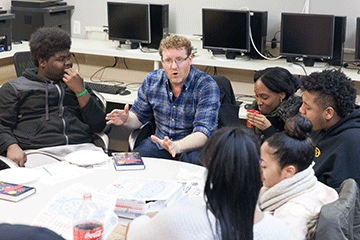 “I grew up in an overwhelmingly white, working class kind of neighborhood and town,” said Kiely, who was raised just outside Boston in a town called Melrose, Mass. “And that influences a lot of why I’m reflecting back on what it means to have white privilege in my most recent book.” According to Kiely, most children of color grow up experiencing “The Talk” with their families, the honest discussion about survival in a racist world. But most white kids are barely spoken to about race at all, and that needs to change, he said. “Because not talking about racism doesn’t make it go away,” Kiely said. “Not talking about white privilege doesn’t mean it doesn’t exist. “Even though I was living in an area where it didn’t seem like racism ‘quote-unquote’ affected many of us around me, in hindsight it’s thinking about just how not diverse my growing up experience was that I think helps influence why I’m thinking about racism and racial identity so much today.” He clearly recalls, when he was in high school, the front cover of The Boston Globe the day after the rock band Green Day threw a free concert in Boston that turned into a riot, injuring more than 50 people. Although from subsequent publicity the 1994 melee did not appear to be race-related, the newspaper photo told a different story. “The picture was of a white man — looked Irish background to me — tattoos on his bicep, with fist cocked back about ready to punch a Black man. It resonated for me as ‘This kind of racial tension is happening in the city that I identify with in the same way that it was happening in the 1970s during the bus boycott riots.’ That was a pretty startling moment for me to realize about how little had changed since then despite my thinking that it had beforehand in my life.” It also dawned on Kiely that he had never socialized with the Black children who were bused into his mostly white town when he was going to elementary school. “I wanted to be harder on myself on why didn’t I do a better job on being more inviting.” He’s amazed that people whose own ancestors found a new life in America but faced adversity — like discrimination against Irish immigrants or Catholics — don’t always welcome newcomers. “It’s interesting how quickly we abandon our allegiance to people when we used the same story to glamorize our own family’s history,” Kiely said. “How could folks whose Irish ancestors struggled so mightily not have heart for folks who are fleeing war and famine in Guatemala or wherever?” People of color even over many generations have difficulty overcoming their “outsider” treatment by whites, who prefer to explain the difference with the narrative of “pulling themselves up by their bootstraps.” “Yet two generations later, I don’t have the same struggles that are attached to my identity, as folks who are indigenous, folks who are in many Black families, folks who are in many families who are multigeneration in this country but are people of color. That’s why I think it’s essential for white folks like my own to acknowledge what privilege looks like as our family story changes generation to generation, in a way that doesn’t change as dramatically for people who are not white like my family. “It says nothing about individual character and everything about systemic problems that could be addressed and should be addressed,” he said. Kiely estimates he’s spoken with about 50,000 schoolchildren around the country in recent years as an author and public speaker. He’s hearing more stories from them of being culturally accepted and seeing more of that on TV shows and in the pages of novels. “We are a multiracial country and those kinds of stories give me hope that we can be better about normalizing that kind of experience,” Kiely said. “Because that’s the case for so many people.” For more information, contact organizer Keith Newvine, assistant professor of literacy and president-elect of the New York State Reading Association. SUNY Cortland plans ‘alien plants’ talkMost home gardeners pottering around with trowel, plant cuttings and a bag of mulch behind the old homestead don’t think of themselves as “nature’s best and last hope.” Doug Tallamy, an entomologist at the University of Delaware and best-selling author, does. He would like to see more people view their backyards as probably the last opportunity we have for sustaining endangered plants and animals that were once common throughout the U.S. “We are at a critical point of losing so many species from local ecosystems that their ability to produce the oxygen, clean water, flood control, pollination, pest control, carbon storage, etc. — that is, the ecosystem services that sustain us — will become seriously compromised,” he warned. SUNY Cortland’s Garden Advisory Committee, which among other things creates and helps maintain gardens and edible landscaping in consultation with Facilities Management, has asked Tallamy to give a virtual lecture on Monday, March 7, on the topic “Are ‘Alien’ Plants ‘Bad’?”  Tallamy will begin at 7 p.m. The event is free and open to the campus community. Participants must register at the following link. “We were taught from childhood that plants are decorations and our landscapes are for beauty; they are an outlet for expressing our artistic talents and an oasis for having fun and relaxing in,” Tallamy said. “And, whether we like it or not, the way we landscape our properties is taken by our neighbors as a statement of our wealth, our social status, and our willingness to follow cultural norms.” However, Americans have taken over 95% of the natural world in the lower 48 states and made it unnatural while biodiversity is rapidly disappearing from what little wilderness remains, he noted. Native animal species can’t eat most of the invasive trees, shrubs and grasses that now thrive without any check on their growth and now dominate the landscape. In recent years, Tallamy has tried restoring 10 acres of exhausted farmland filled with non-native species. He is excited by the results and is encouraging others to start planting native species flora. “The birds and other vertebrates that live on our land can do so, not just because of the moths our plants produce, but also because of the fruits and nuts our oaks, black walnuts, hickories, filberts, blackberries, serviceberries, dogwoods, persimmons, black cherries, pawpaws, chokeberries, viburnums and black gums make each year,” he wrote. Tallamy manages a related website called Home Grown National Park. 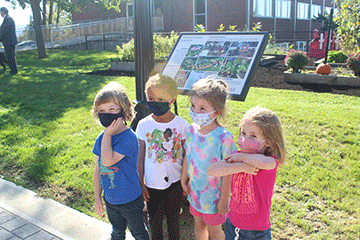 He’ll discuss how the non-native species currently dominating our backyards figure into the ultimate solution that weekend caretakers can apply to their micro-preserves. “Everyone who owns land has a golden opportunity to enhance, rather than degrade, local ecosystems by including ecological function as a criterion when we choose landscape plants,” Tallamy said. “And everyone who does not own land can become a player in the future of conservation by volunteering for a local park or land conservancy.” The lecture is co-sponsored by the New York State Master Teachers Program and SUNY Cortland’s Biology Club, and the university’s Sustainability Office. For more information, contact Garden Advisory Committee representative Sarah Beshers, professor of health and community health fieldwork coordinator. Black History Month 2022SUNY Cortland will host two dozen events throughout Black History Month. These events include presentations, panel discussions, podcasts and more. Attendees are asked to follow SUNY Cortland’s COVID-19 safety policies, including the wearing of face coverings in all indoor spaces. Please refer to the university calendar for updates throughout February. Events include:
Members of the campus community are also encouraged to participate in the 21-day Anti-Racism challenge at any time. The challenge is an opportunity for individuals to learn, grow and foster awareness, compassion and understanding. Co-sponsorships and funding for Black History Month events were provided by the President’s Office, the Institutional Equity and Inclusion Office, the School of Arts and Sciences, the School of Education, the School of Professional Studies, the Africana Studies Department, the Political Science Department, the Performing Arts Department, the Sociology/Anthropology Department, the Multicultural Life and Diversity Office, the President’s Council on Inclusive Excellence, the Campus Artist and Lecture Series, the Educational Opportunity Program, Student Government Association, the Know Your Roots-Africana Studies Association, SUNY Cortland NAACP, the Black Student Union and the Pan African Student Association. For more information or questions, please contact Distinguished Teaching Professor Seth Asumah, chair of the Africana Studies Department, at 607-753-2064. Resources for your academic, physical and mental well-beingDear students, I hope you are settling into this semester, both in your classes and your other activities.
I did want to share a few reminders about resources that are available to you.
If you need any academic support, please consider:
Your mental and physical health are equally important to your well-being and success. You may contact the Counseling Center if you need to schedule an appointment for services. I would also encourage you to make use of the many fitness opportunities available to you through Recreational Sports and the Student Life Center.
There are many events on campus that will allow you to relax and unwind or to challenge yourself academically, culturally and socially outside of your classes. Several Black History Month events will happen through February. Please stay in touch with what's going on through the campus calendar or what's happening with student clubs through Cortland Connect.
Please be well and make the most of all the resources available to you.
All the best,
Erik J. Bitterbaum
President An update on the student surveillance testing processDear students, Starting Monday, Feb. 14, the university will begin a change in the way it conducts surveillance testing for students. Instead of using laboratory processed PCR tests, we will shift to using rapid tests. This will help us keep campus safer by providing quicker results, allowing students to take immediate action to prevent spreading the virus to others. The university will also be able to respond faster to trends identified in surveillance testing. Unvaccinated students must continue to test weekly. These students will receive email reminders each Sunday evening and should follow those instructions. Vaccinated students will be selected at random and sent an email on Sunday evenings informing them they need to participate in testing during the week. If you receive an email informing you that you’ve been selected for surveillance testing, please note:
Any students who do test positive during surveillance testing will be given specific instructions before they depart. If you are experiencing COVID-19 symptoms, you should schedule a test outside of the surveillance testing process as soon as possible. You may call Student Health Service at 607-753-4811 or you may schedule an appointment for the state-run testing program in the Carl A. “Chugger” Davis Building at the Stadium Complex, which is open between 8:30 a.m. and 4 p.m. on weekdays. Thank you for your attention to this change and please remember to check your email on Sunday evenings for surveillance testing messages. All the best, Erik J. Bitterbaum President  Suggest a feature story Suggest a feature story
Faculty/Staff ActivitiesThomas HischakThomas Hischak, professor of theatre emeritus, had his book The Thornton Wilder Encyclopedia published by Rowman & Littlefield in February. Hischak has also signed a contract with Bloomsbury Press (London) to write The Abbott Touch: The Theatre of George Abbott. Jeremy JimenezJeremy Jimenez, Foundations and Social Advocacy Department, had his essay, “The Hidden Costs of Zooming: Exploring Non-digital Pedagogies for a More Sustainable Future,” published in Issue 11.1 of Texas Women's University’s journal Films for the Feminist Classroom, Winter 2021. Tom LickonaTom Lickona, Center for the 4th and 5th Rs and professor of education emeritus, shares that his blog posts, “8 Ways Parents Can Teach and Get Respect” and “Talking to Teens about Love and Sex,” were chosen by Psychology Today editors as “essential reads” for parents.  Submit your faculty/staff activity Submit your faculty/staff activity
In MemoriamPhyllis McGinley, associate professor emerita of physical education and C-Club Hall of Fame member, died on Feb. 15. Linda E. Rosekrans, lecturer emerita of English, died on Feb. 9. |
The Bulletin is produced by the Communications Office at SUNY Cortland and is published every other Tuesday during the academic year. Read more about The Bulletin. To submit items, email your information to [email protected]
© 2026 SUNY Cortland. all rights reserved.